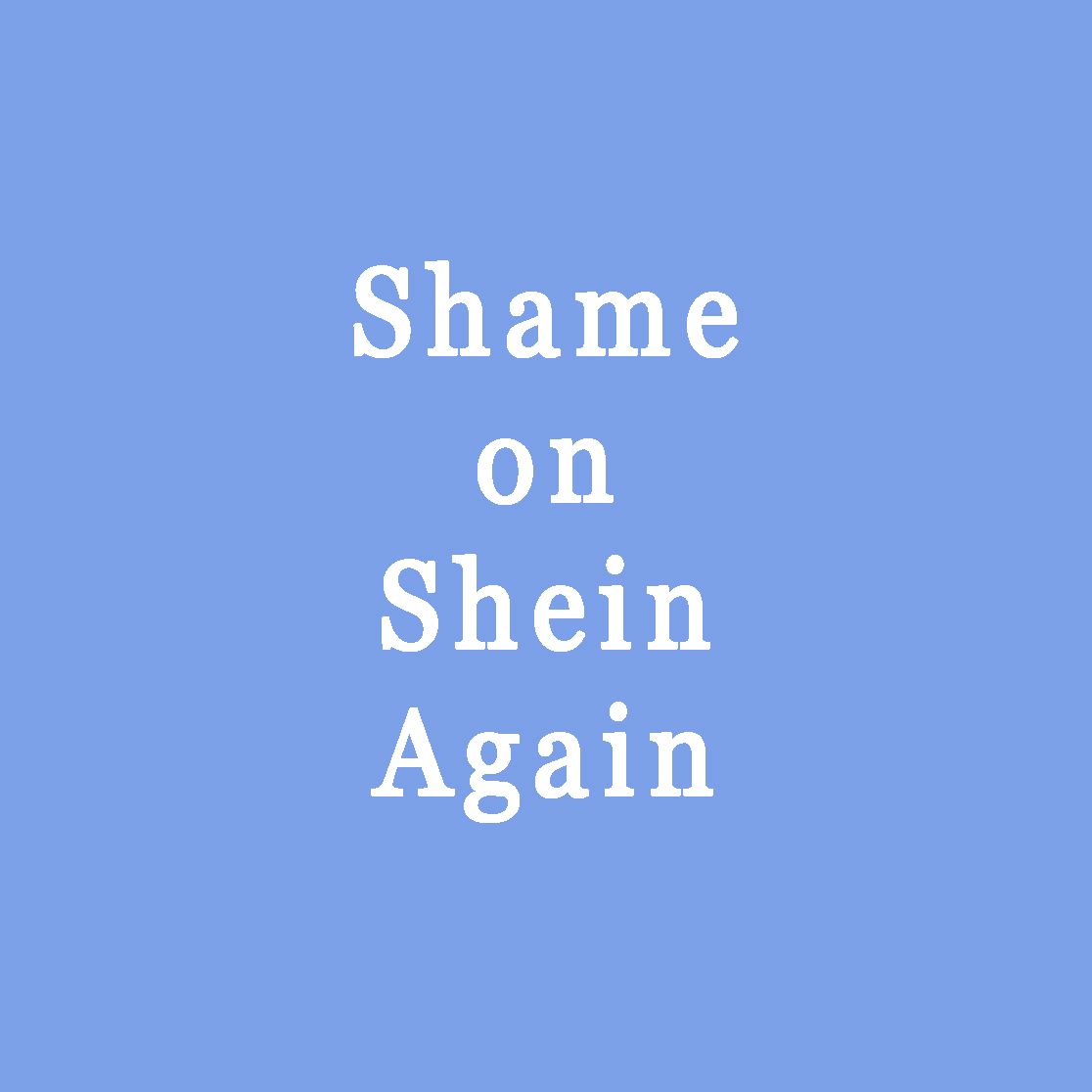A while back, I covered an incident where the Chinese fast fashion retailer Shein found itself in a spat with the British artist Vanessa Bowman. The company had used an image of one of Bowman’s paintings on a sweater without her express permission. At the time, this was only the latest instance of Shein clearly stealing the works of artists to use on clothing, stickers, posters, and other products available for purchase online. The most common way artists exposed this ongoing problem was by stirring up public outcry on social media. The Artists’ Union, an organization representing hundreds of artists in Britain, has endorsed such actions. Only large companies with well-known, copyrighted logos and images attached to their name have been the ones willing and able to go through with legal action. However, a group of artists has recently banded together to sue Shein, using an interesting legal strategy. They intend to hold the company accountable by using legislation meant to counter organized crime.
The Racketeer Influenced and Corrupt Organizations Act, commonly referred to as RICO, is a law meant to combat organized crime and its infiltration of legitimate businesses. The law has been successfully implemented in prosecuting John Gotti and Hells Angels members. Luckily for the artists, copyright infringement is one of the crimes listed as a form of racketeering, which the lawsuit describes as “large-scale and systematic” in Shein’s case. Artists Krista Perry, Larissa Martinez, and Jay Barron are the plaintiffs named in the lawsuit, alleging that not only did Shein steal their designs for use on products available online but that Shein’s corporate structure is intentionally designed to deflect blame and avoid the company being named as a defendant in any legal action. The artists’ lawyers called the company a “decentralized constellation of entities, designed to improperly avoid liability.” Shein is neither a single company nor a parent company with subsidiaries or independent contractors. According to the lawsuit and other sources, Shein is “a loose and ever-changing […] association-in-fact of entities and individuals”. Researchers and journalists can attest that when confronted with intellectual property cases, Shein often defers to other businesses they claim do their design or production for them. However, it is now known that these seemingly third-party companies are shell corporations Shein operates to absorb their legal woes. The collection of companies popularly known as Shein is intentionally decentralized so that blame cannot be definitively placed on one part.
Krista Perry is an illustrator and designer who has previously done work for Jameson Irish Whiskey and Nickelodeon. One of her designs, the stylized phrase Make It Fun against a pink background, was made by Shein into a framed poster. Larissa Martínez operates the handmade clothing brand Miracle Eye, and found that her marigold-patterned shorteralls were being copied and sold on Shein’s website. Jay Baron mainly designs stickers and patches through his company Retrograde Supply Co., including a patch based on a nametag called Trying My Best. He later discovered products available on Shein that were practically identical.
Outside of intellectual property theft, Shein’s reputation is still terrible. The company’s working conditions are notorious, with allegations including 75-hour shifts, incredibly unhealthy, dangerous workspaces, and the use of hazardous materials. Some factories have even been accused of using underage or forced labor. Shein’s environmental record is equally abhorrent, with their factories alone emitting around 6.3 million tons of carbon dioxide annually. And their attempts to clean up their image before their imminent initial public offering have failed. Recently, Shein invited a select group of social media influencers and content creators to tour factories in China. This was to show how well their workers were faring and how content they were with their employment. However, many people saw this ploy for what it is: a modern-day Potemkin village; like when you straighten up your place when you know you’re having people over. Things seemed set up or staged especially for these foreign visitors as a way to deny the insurmountable pile of evidence that will contradict this sorry excuse of a defense. One Twitter user responded, calling the featured facility “the model unit equivalent of the sweatshops”. Some have even predicted that while Shein’s future as a company remains unclear, these young influencers/creators will most definitely receive negative feedback for years to come because they decided to involve themselves in a propaganda campaign. One of the influencers on the trip even pitched the tour as her doing a bit of investigative journalism, as if anything seen in her content was objective or fact-based.
Luckily, about two dozen members of Congress have called upon the Securities & Exchange Commission (SEC) to delay Shein’s IPO until they fully investigate the allegations against the company. Specifically, Shein allegedly uses forced labor provided by imprisoned Uyghur people in western China. The new lawsuit brought by Perry, Martínez, and Baron may not be the single thing that holds Shein accountable, but it may be the first domino that leads to a more thorough investigation into the company. Hopefully, by the end of this, we can all know the full extent to which Shein has destroyed the environment, exploited its workforce and stolen from independent artists too small to fight back.

